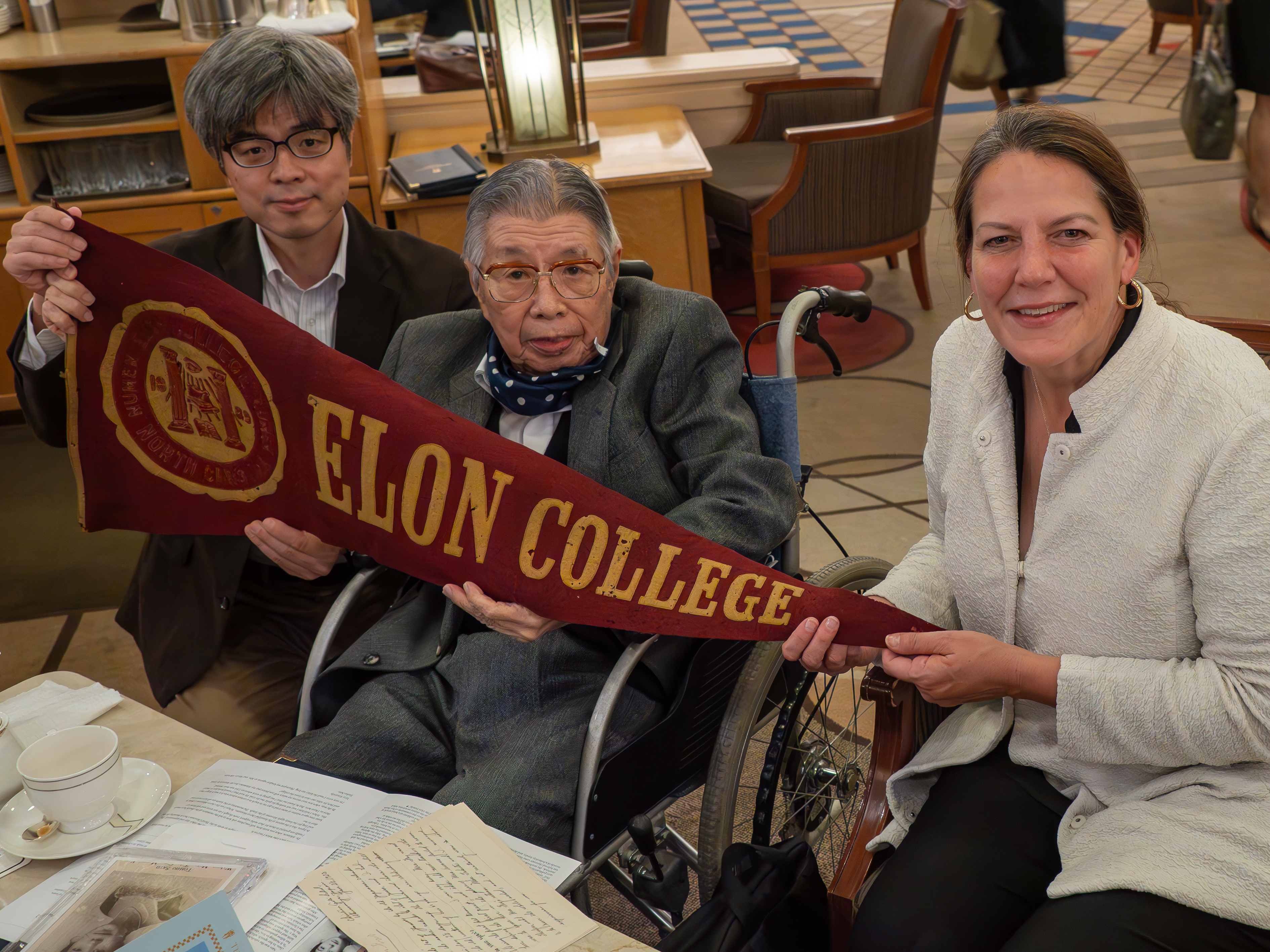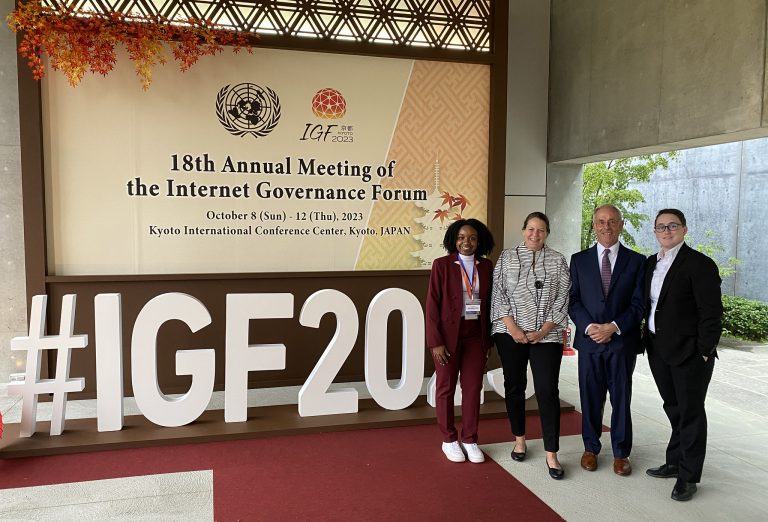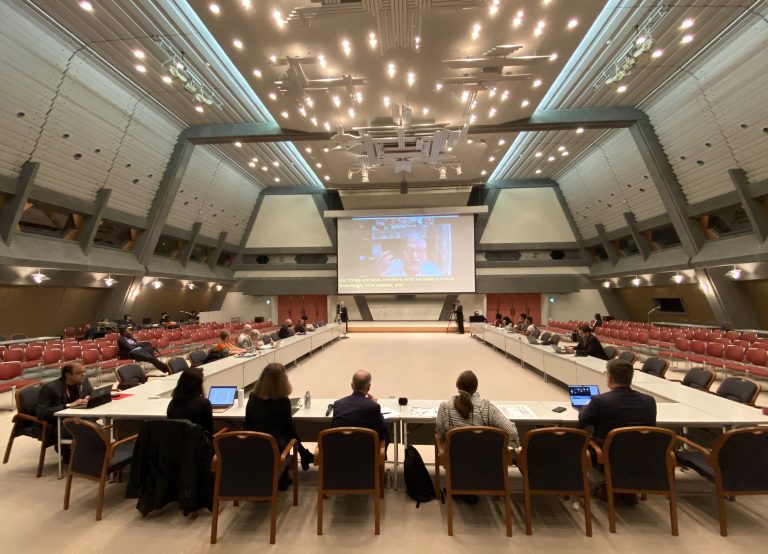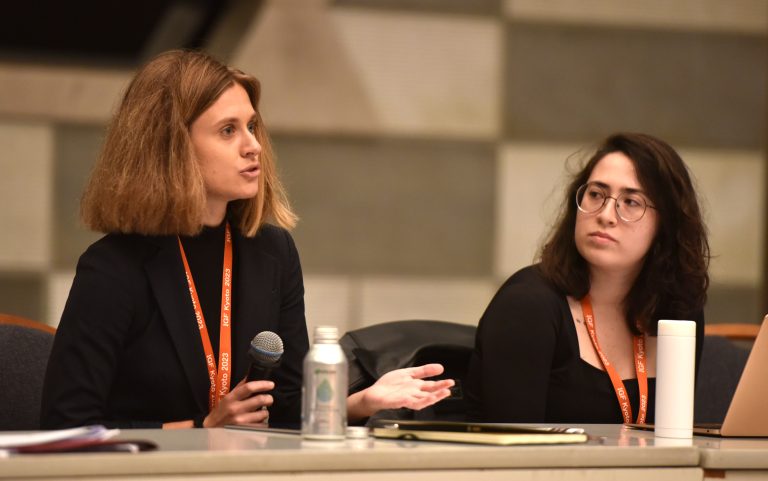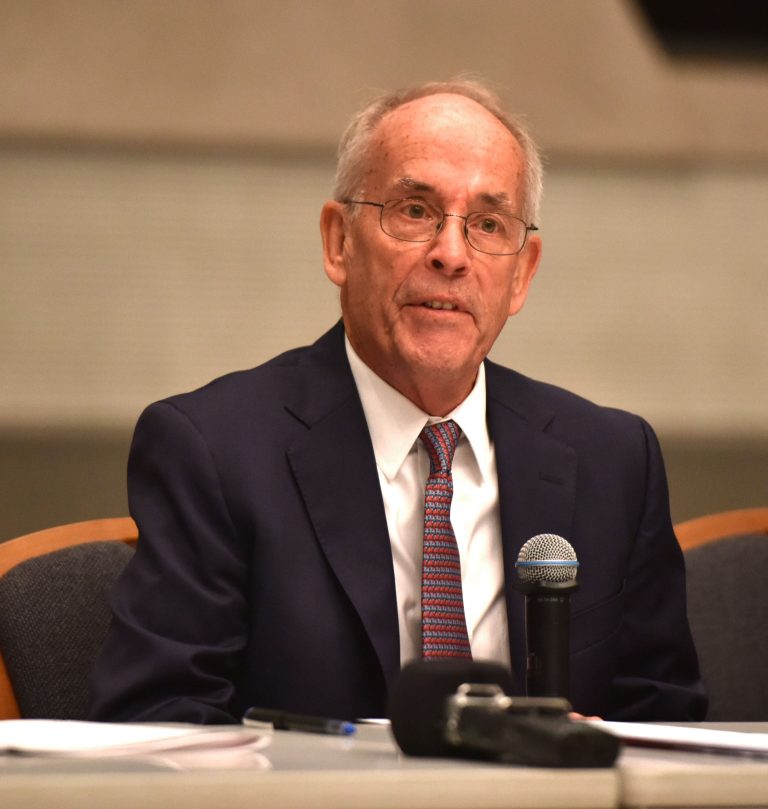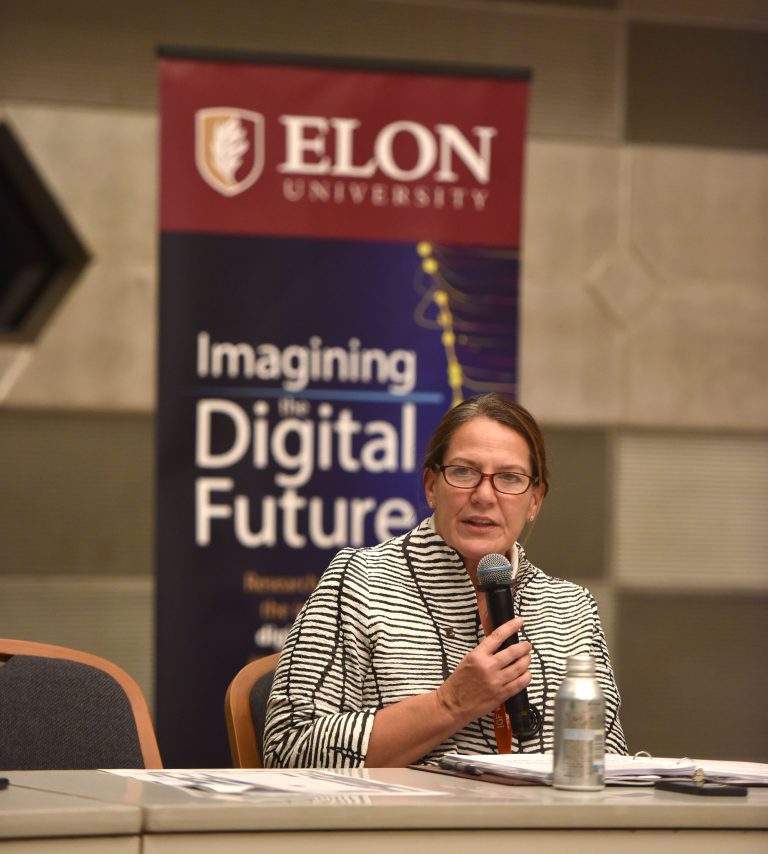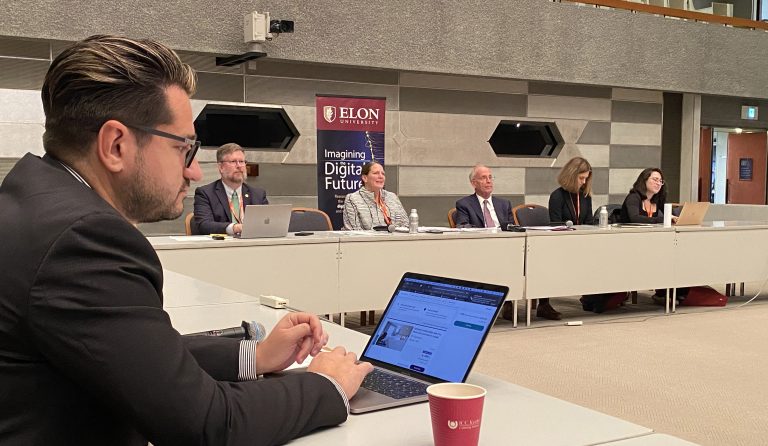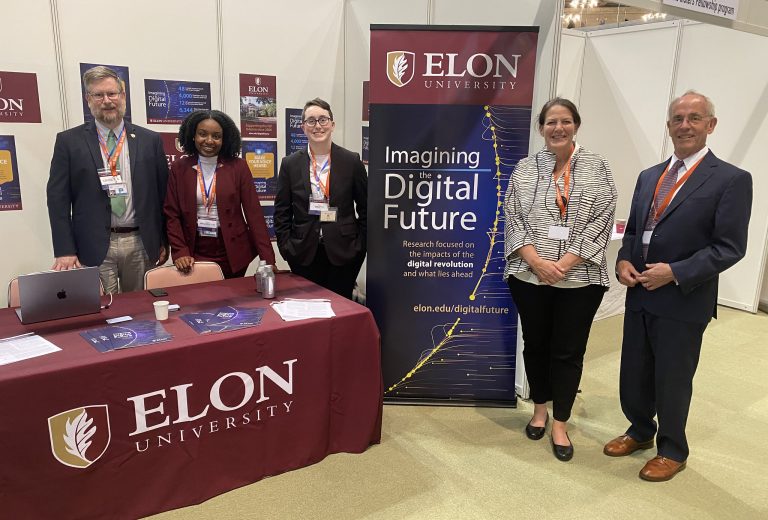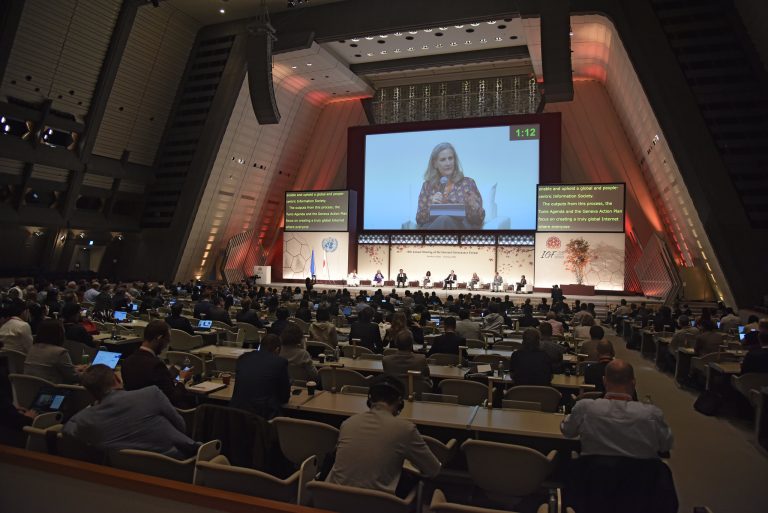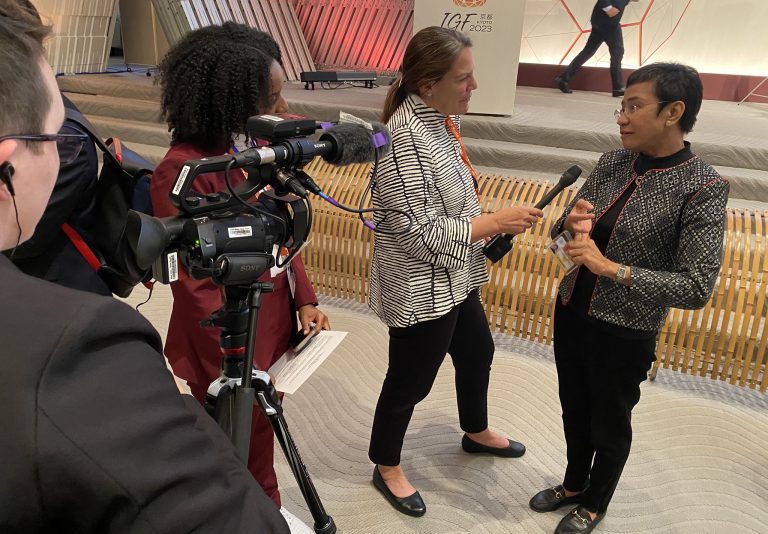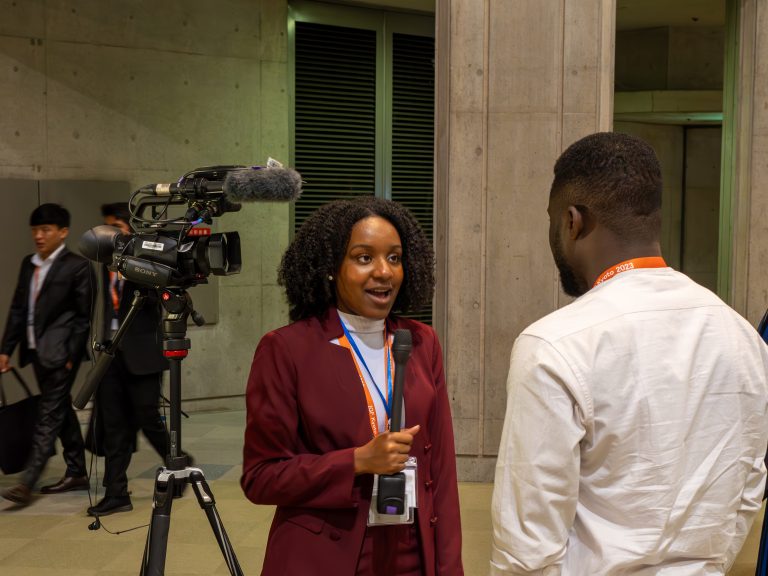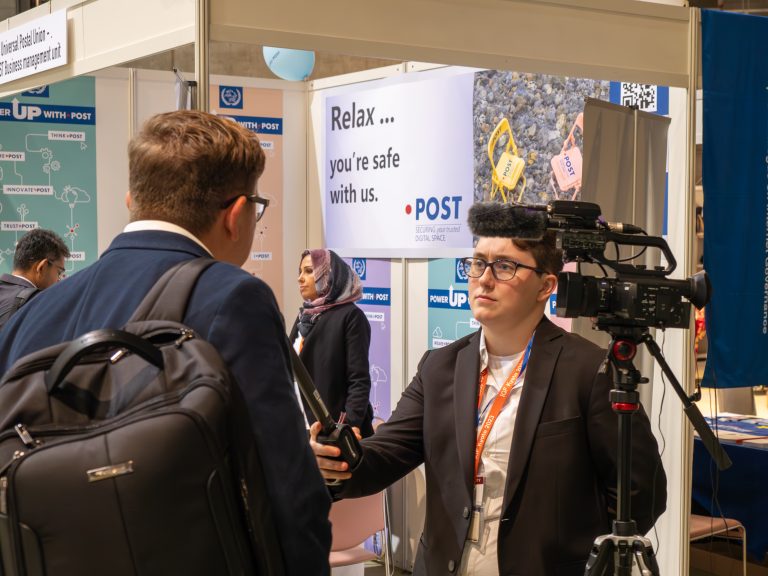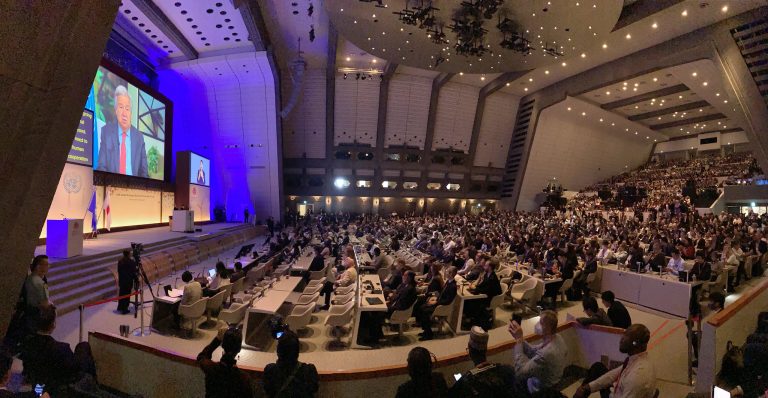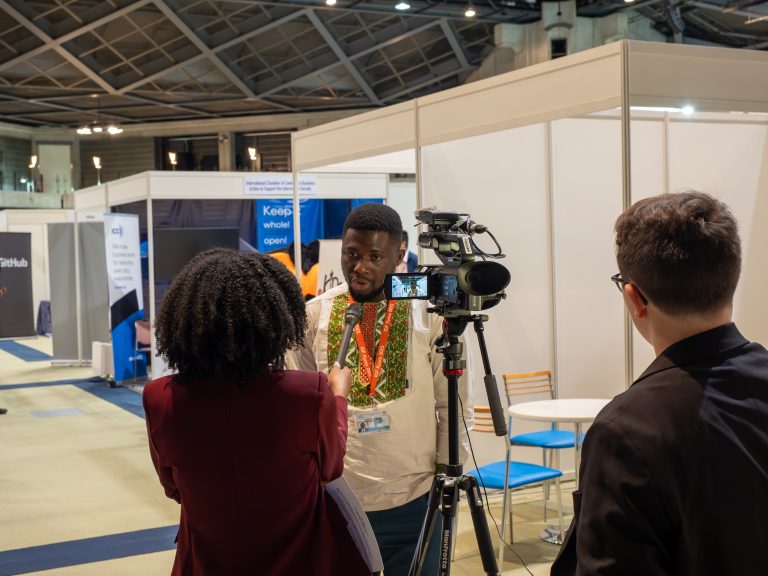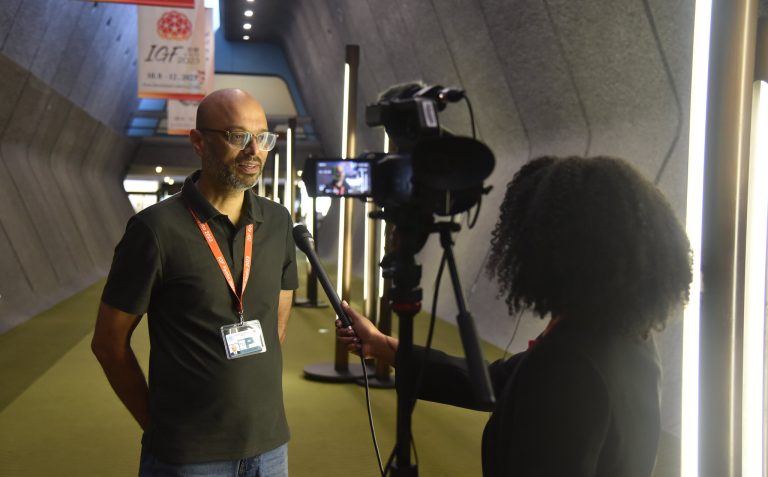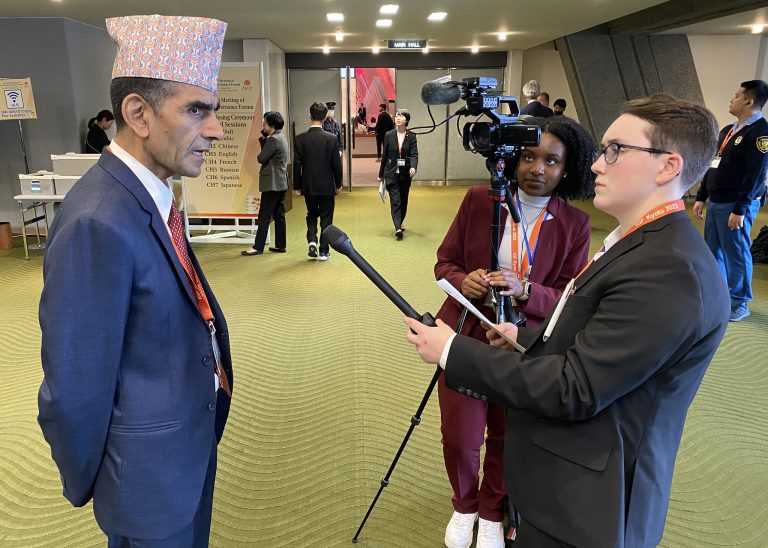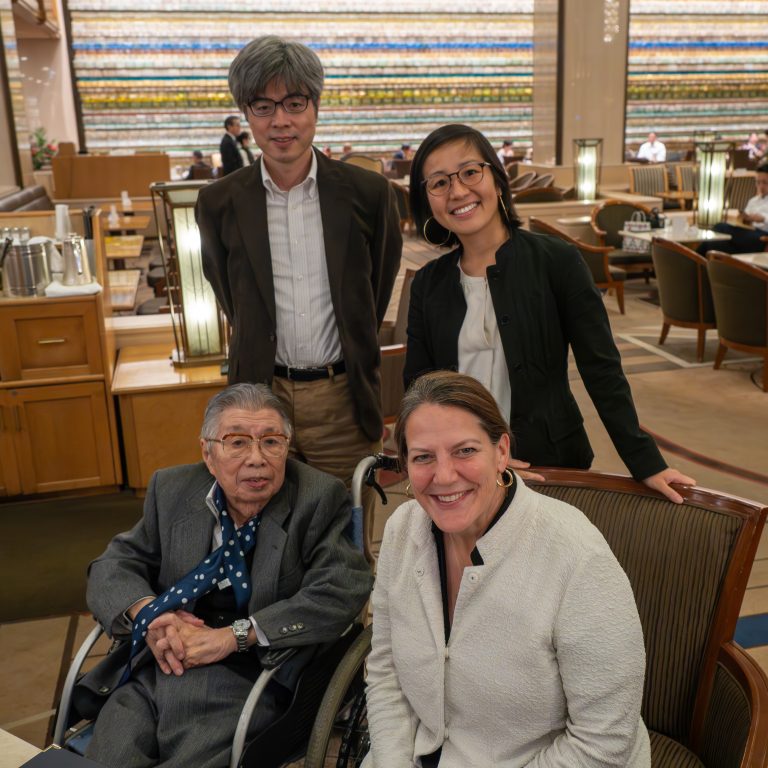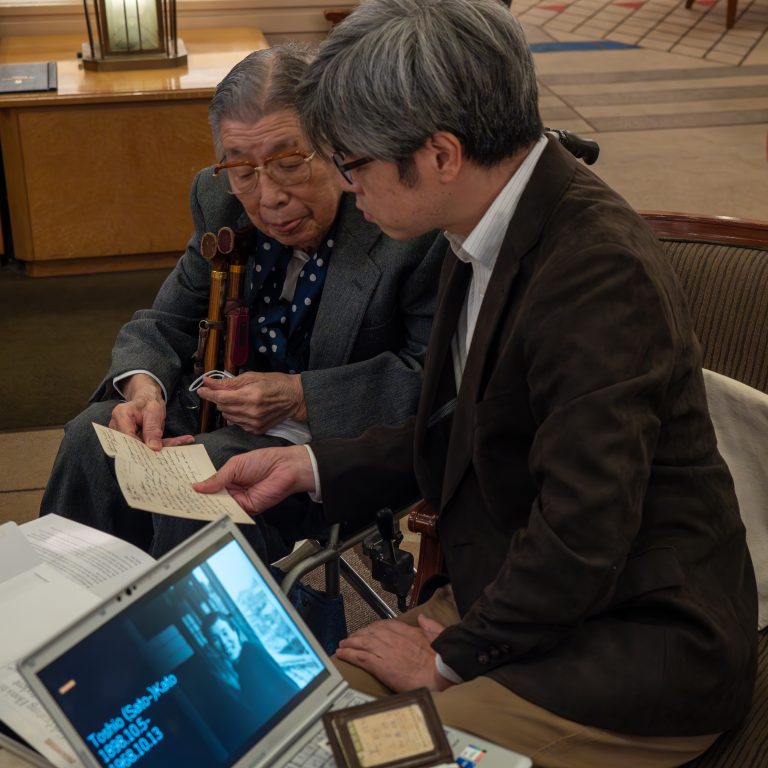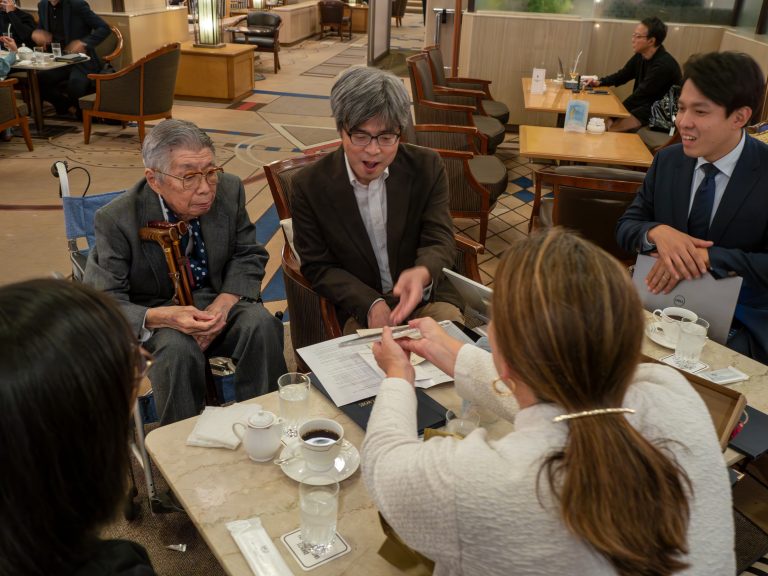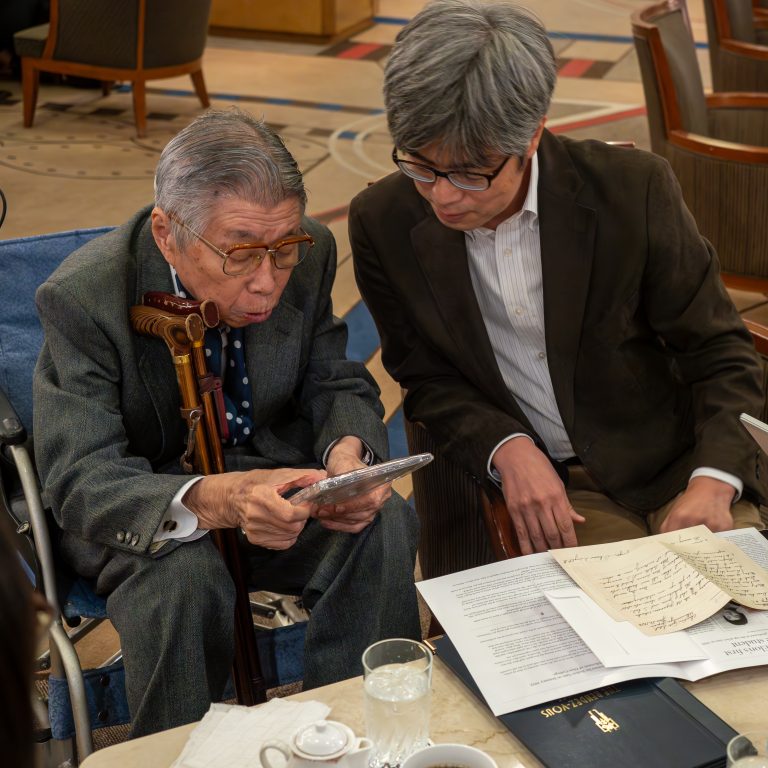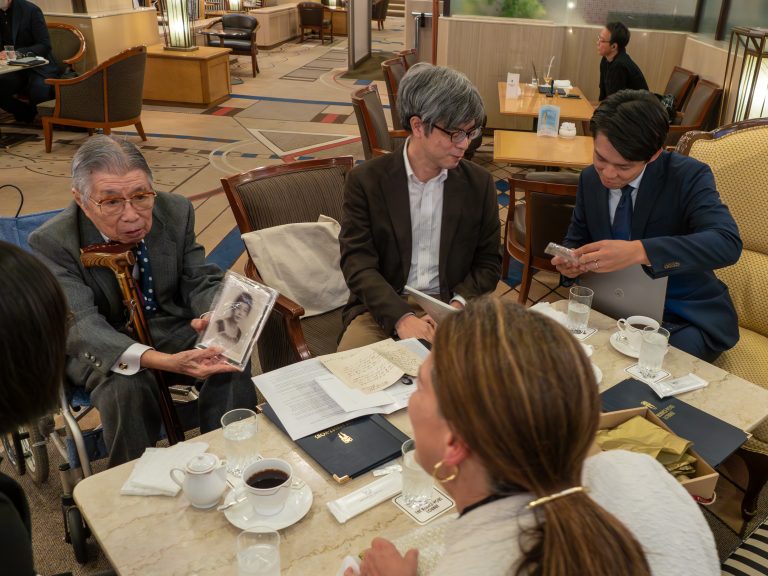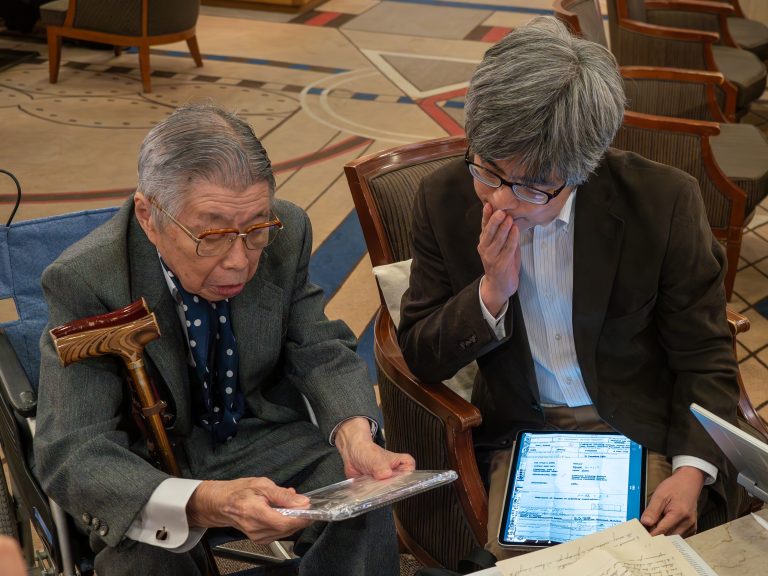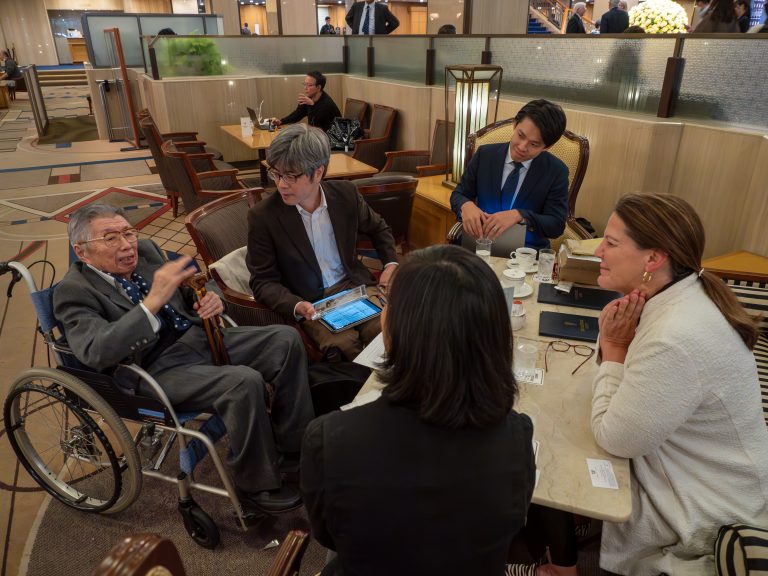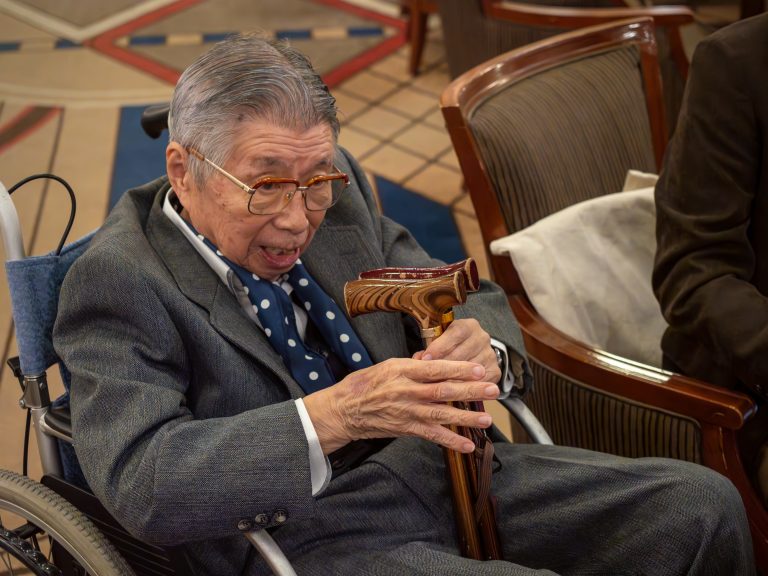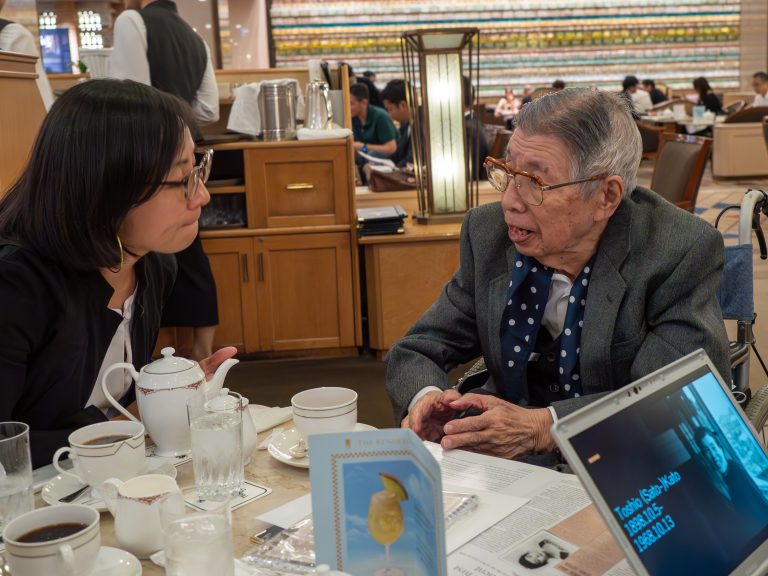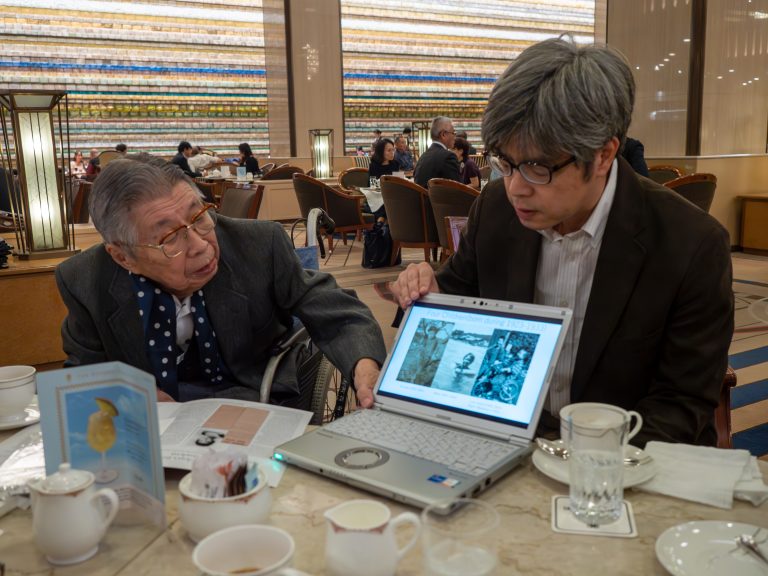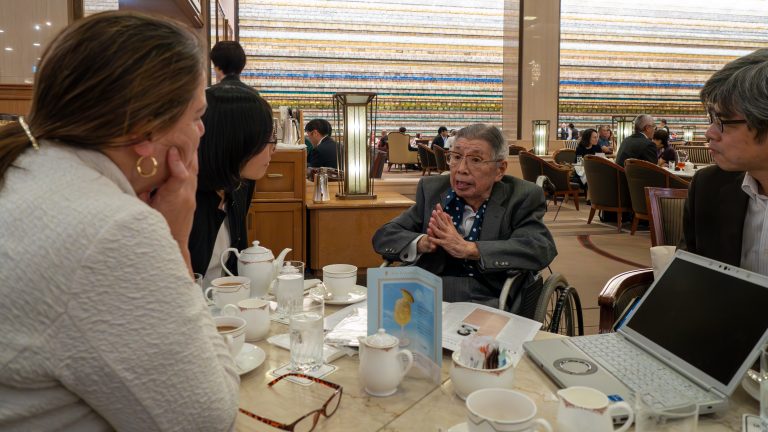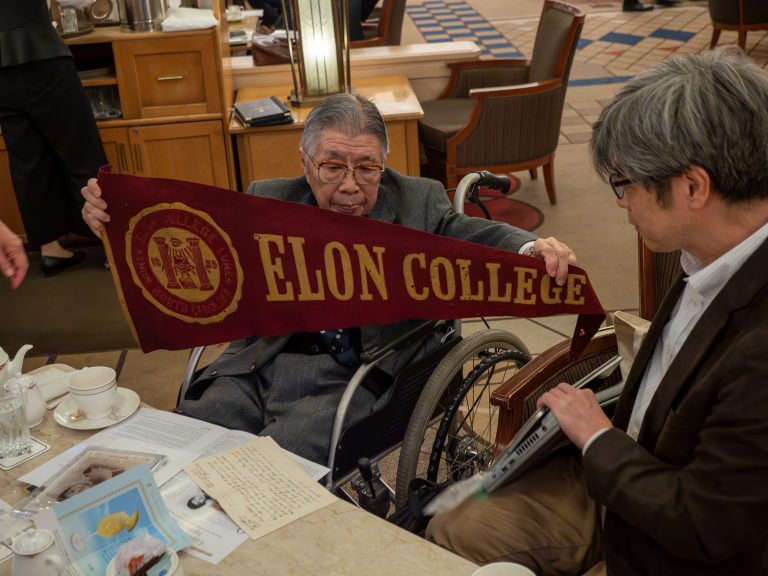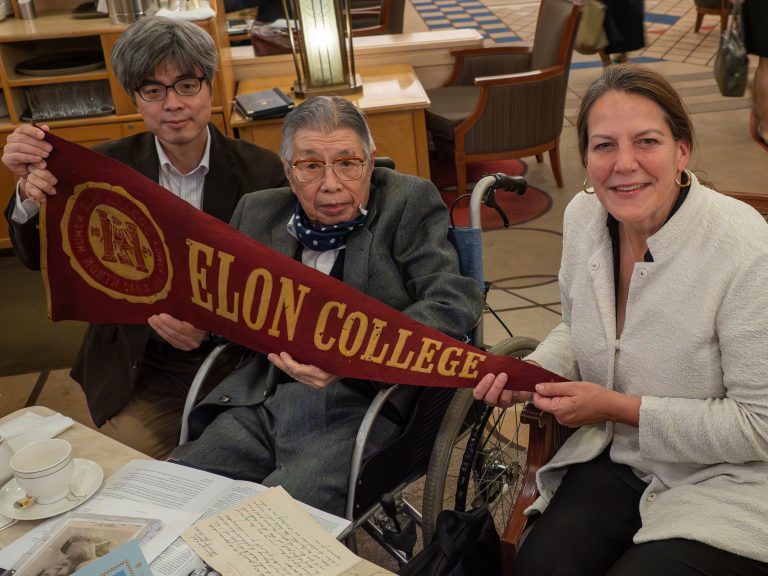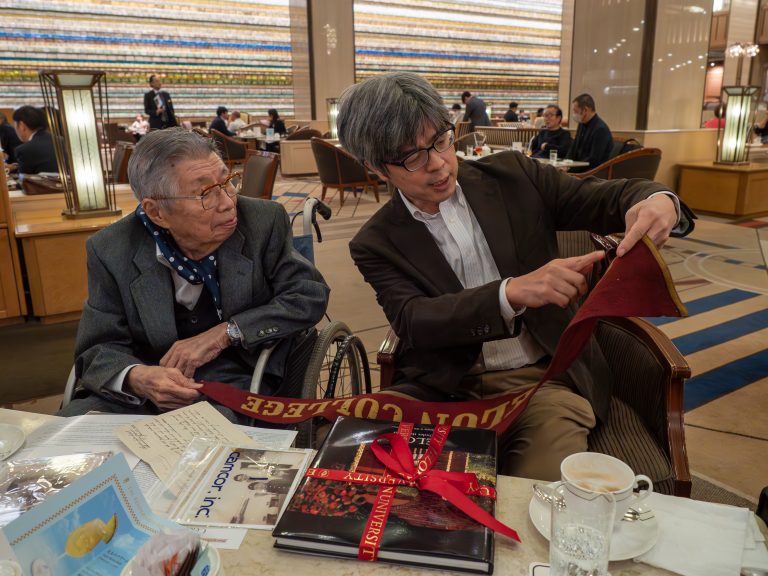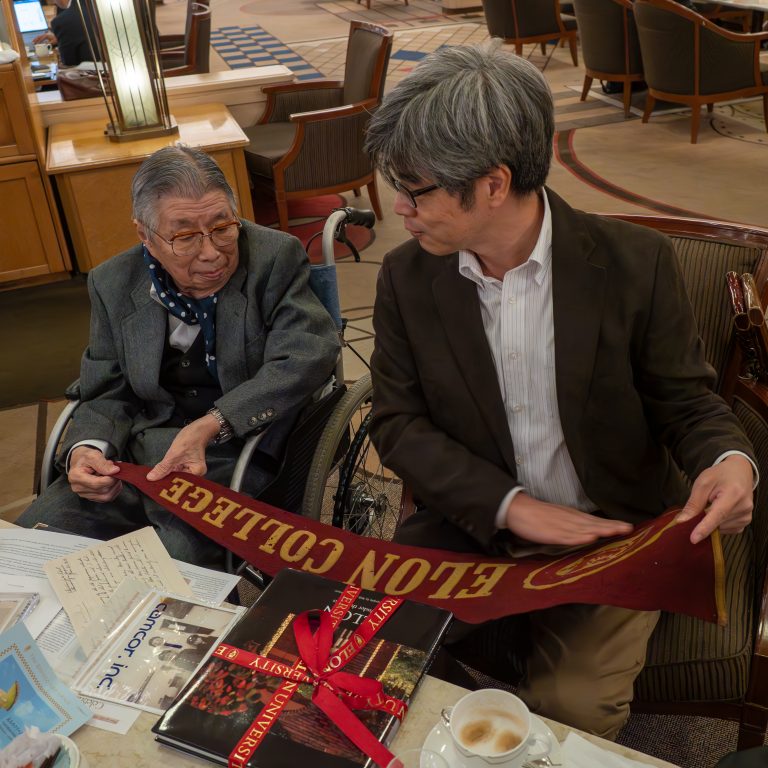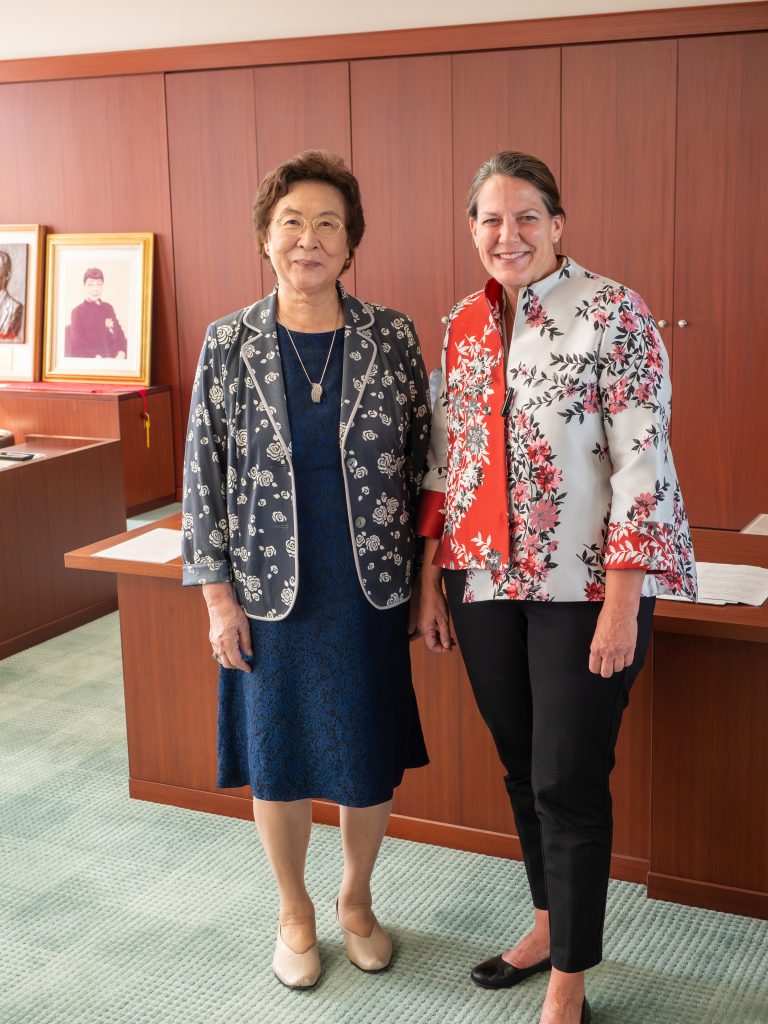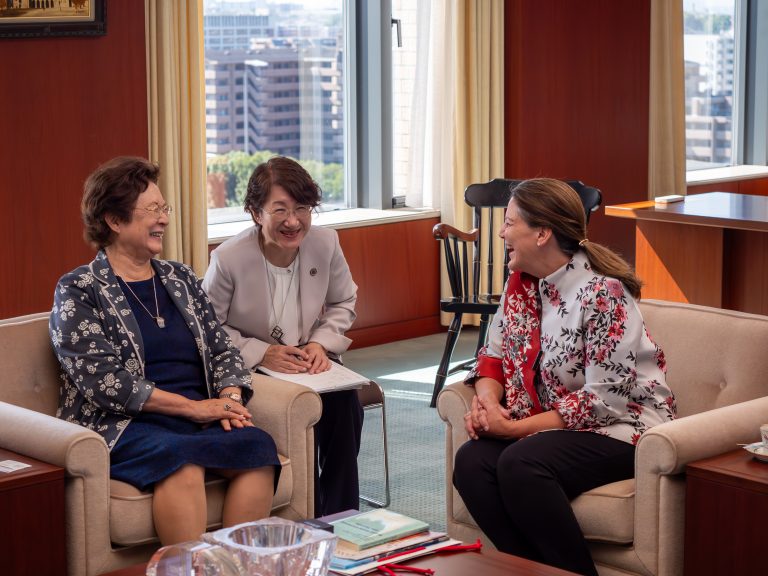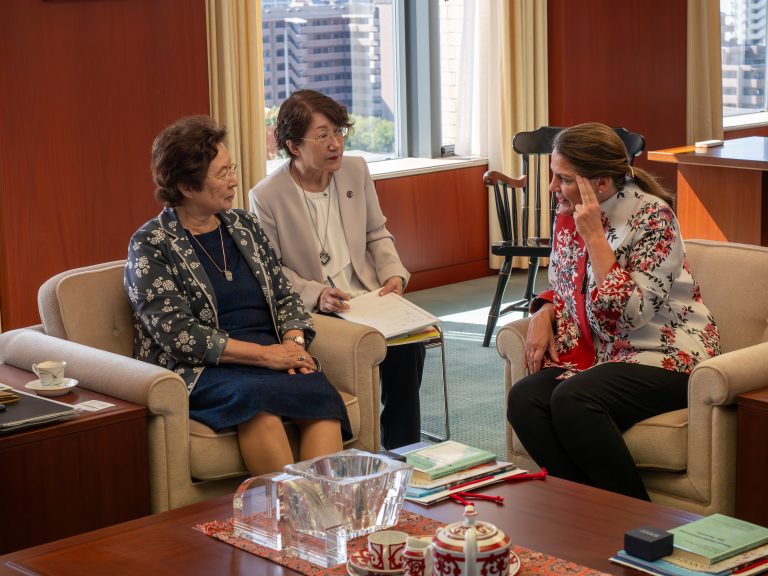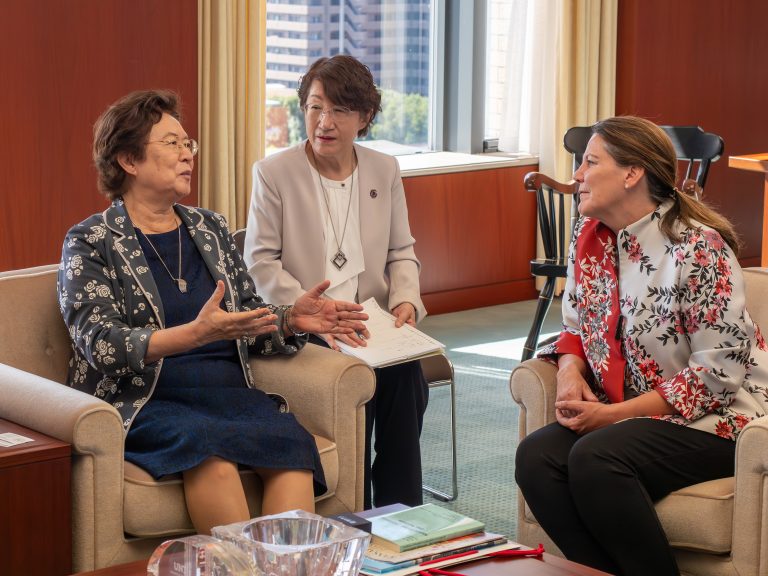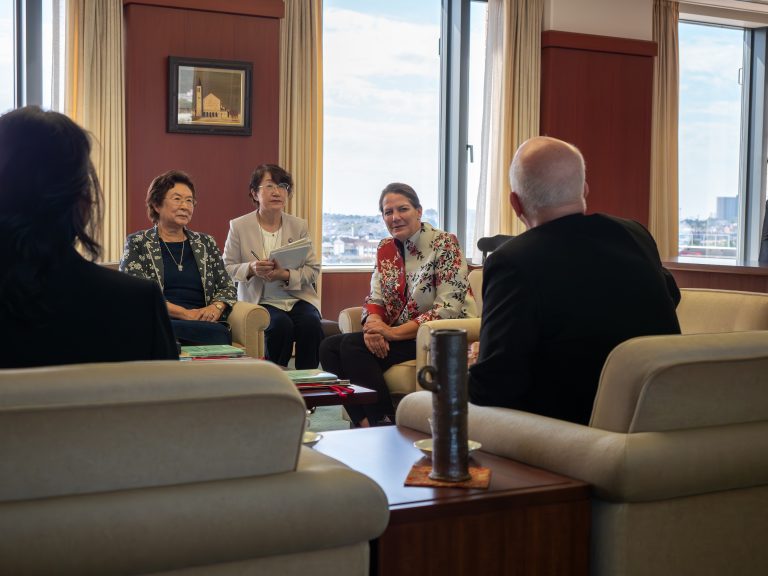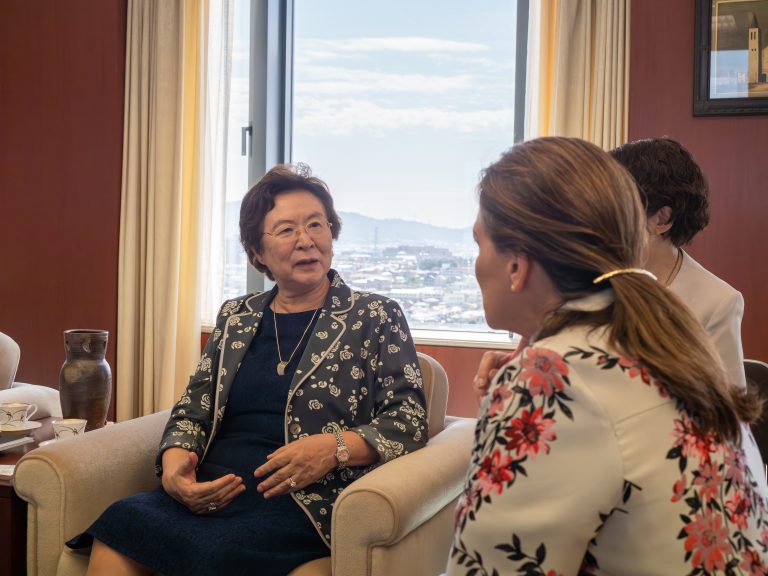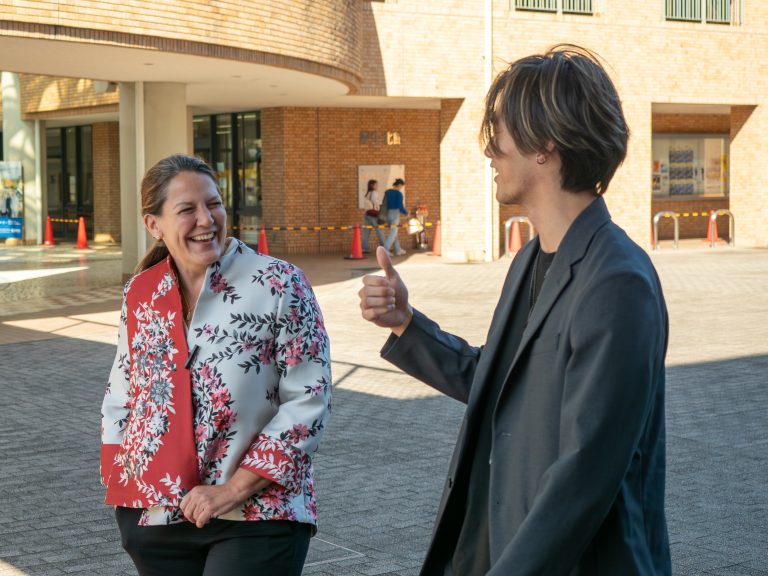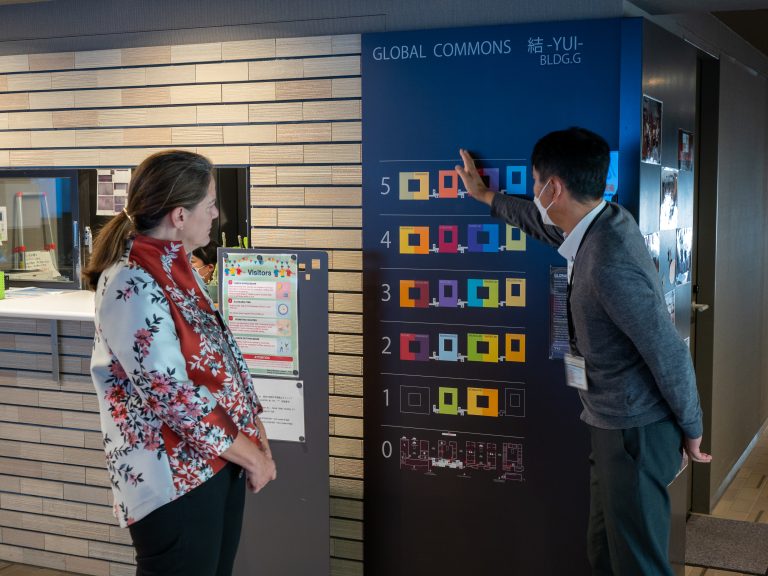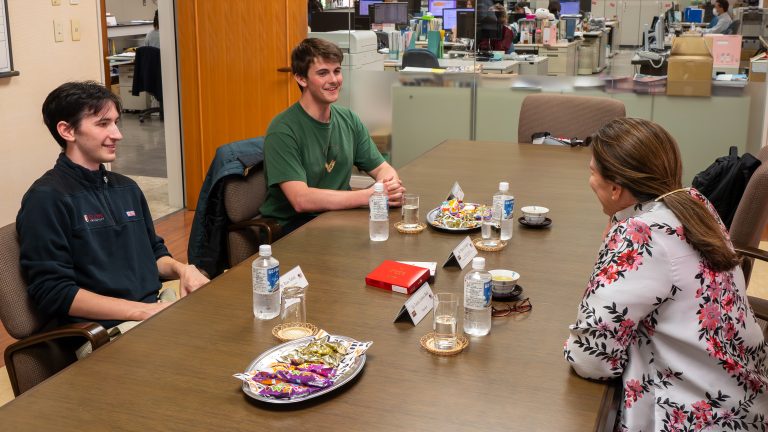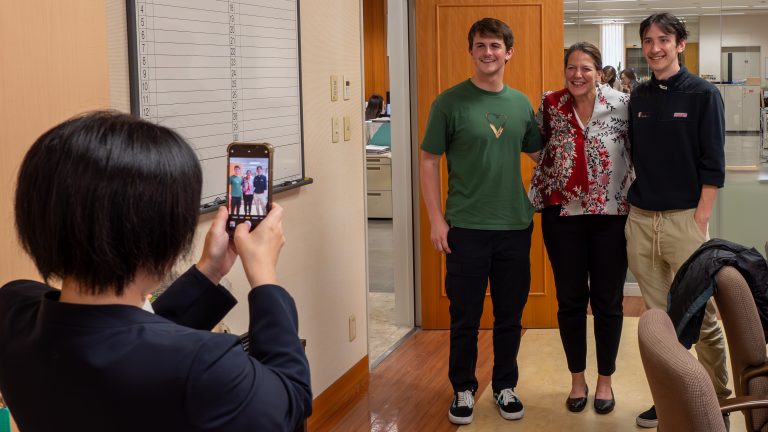During a recent trip to Japan, members of a delegation from Elon participated in a range of experiences related to global engagement and digital life.
A delegation from Elon led by President Connie Ledoux Book recently visited Japan for a series of events that explored the past, present and future of the university related to global engagement and digital life.
Anchoring the visit was Elon’s participation in the 2023 Internet Governance Forum, an annual meeting organized by the United Nations that drew thousands of participants from 170 countries to Kyoto. Across five days, the event featured discussions about the most pressing issues regarding how the internet is governed on a global scale, with a focus this year on empowering a broader array of people to fully leverage the benefits of the internet and digital technologies.
During the forum, Elon hosted a session centered on a new statement of principles to guide higher education institutions as they prepare humanity for the revolution brought about by rapidly evolving and groundbreaking artificial intelligence technologies. Elon’s Imagining the Internet Center hosted a booth throughout the forum that highlighted new work focused on imagining the digital future that will be led by new scholar-in-residence Lee Rainie, who has joined Elon after two decades with Pew Research Center.
The time in Japan also presented an opportunity to connect with Elon’s past, as Book met for the first time with the son and grandson of Toshio Kato, a member of Elon’s Class of 1920 and the university’s first international graduate.
The delegation also explored the university’s present by connecting with Elon alumni now living in Japan and a visit to Kansai Gaidai University, a partner institution that hosts Elon students for study abroad experiences and sends its students to Elon as part of a dual-degree program.
“This visit to Japan underscored Elon’s commitment to global engagement and its role in examining and shaping who we will become as a society in the years ahead,” Book said. “I cherished the opportunity to reconnect to important milestones in Elon’s past while looking ahead to our collective future.”
Internet Governance Forum
This year marked the 12th year Elon has participated in the Internet Governance Forum and the time in Japan extended the Imagining the Internet Center‘s work to document the insights and opinions of a broad range of stakeholders about pressing digital issues. Joining Rainie in Kyoto were Elon students Erin Martin ‘25 and Naomi Washington ‘24 who during their time at the forum conducted more than 50 interviews of participants about the impact of artificial intelligence between now and 2040.
Martin and Washington asked about how people believe their personal lives will be impacted by AI, how AI will benefit or negatively impact societal structures and what digital life will be like in 2040. Tied to the Oct. 9 release event at the forum, Martin and Washington also asked about what impact AI will have on colleges and universities between now and 2040.
“Being a student reporter at IGF 2023 in Kyoto was one of the coolest experiences I’ve ever had,” Washington said. “Reporting is always fun but having Japan as a backdrop for the week was unforgettable. It was fascinating to learn through interviewing attendees that people from countries all over the world are also working hard to brainstorm ways to embrace artificial intelligence. This depth of this new technology is surprising for everyone, but we can’t shy away from it.”
Martin said the Internet Governance Forum “opened up a world of global perspectives and technological innovation that I had not previously encountered.”
Through the interviews, Martin was able to engage with individuals from diverse backgrounds and engage in conversations about AI and internet governance.
“Many interviewees emphasized the profound impact of technology on our interconnected world and the current challenges it presents,” Martin said. “As a computer science major, this trip significantly broadened my understanding of the global impact of technology.”
Rainie said that the forum was dominated by debates over AI, such as where it’s heading, how it will impact everything from jobs to people’s well-being, how it will be governed, how it will play out in educational settings and more.
“The adjectives people used about this moment in our history were large,” Rainie said. “AI represents ‘epochal’ change. The disruptions will be ‘gargantuan.’ The scale of impact will be ‘matchless.’ Some believe AI could raise an ‘existential’ challenge to human existence. I came away with a sense that studying AI is an urgent and essential thing to do.”
Rainie said the statement on artificial intelligence and higher education coordinated by Elon was one of the few real “action items” on the agenda at the Internet Governance Forum and it was greeted with a lot of praise and support. “There were urgent conversations in every corner of the conference and a palpable hunger among participants to do something about AI,” Rainie said. “Our petition let them think about a concrete way for institutions to address the big questions that saturated the proceedings.”
Rainie heard from a range of forum participants about the new “Future of Digital Life” survey of experts by the Imagining the Internet Center that was fielded in early October. The survey is seeking the views of experts about the future impact of AI on various aspects of people’s individual lives and on bigger societal systems and institutions.
“It’s so gratifying to know how much these surveys have meant to some of the most important builders and analysts of digital technology,” Rainie said. “They look forward to hearing from us and then reading the findings to see what their peers believe.”
Toshio Kato
Toshio Kato’s story has been an important one in Elon’s history as the university’s first international student to graduate, but one that has been to some extent incomplete. Kato, whose last name was Sato when she arrived at Elon in 1914, would graduate as valedictorian of her class in 1920, having navigated the impact of world war and a global flu pandemic on her way to being named valedictorian of her graduating class.
She would maintain contact with Elon over the years through letters to campus or visits with her in Japan by friends of the university. A 1947 edition of the Maroon and Gold, the student newspaper, included a letter from her to campus about the impact of World War II on her country. She passed away in 1968 in Tokyo at the age of 70, and the university and her family lost touch through the years.
But that changed during the visit to Japan, with Book having the opportunity to meet with her son, Masaharu Kato, and her grandson, Yusuke Kato, in Tokyo to share stories, photos and memorabilia. To help communicate during the meeting, Book was joined by Chika Kusakawa ‘09, who now lives and works in Tokyo.
Book offered Kato’s family members a facsimile of a handwritten letter that the alumna had sent to a mentor at Elon in 1922. That was the year she married Kameichi Kato and at the time she wrote the letter, she was serving as a teacher at a girls’ school in her hometown of Utsunomiya. Book also offered framed reprints of photos in the university archives including her 1920 Phi Psi Cli yearbook photo, a photo of her with her husband, who had attended the University of North Carolina in Chapel Hill, on their wedding day, and a photo of her with her son, Masaharu, taken in 1939 when a friend of the university visited her in Japan.
Masaharu Kato, now 90, recounted how his mother would play piano and sing songs when he was young, often moving him to tears. He remembered hearing her objections to how she was characterized in an article appearing in the newspaper in Yokohama when she returned to Japan that made note of her Western clothes and how her extended time in the United States may have affected her connection with Japanese culture.
“She was always complaining about the newspaper,” Masaharu said through Kusakawa.
Education was important in the Kato household, with Toshio having graduated at the top of her class from Elon and Kameichi having graduated from the University of North Carolina at Chapel Hill. Masaharu earned his doctorate in civil engineering and spent his career as an engineer focused on highway construction and his son and other family members would also earn doctorates.
Toshio Kato would serve as a translator after the war and would spend her last 20 years in the Tokyo home where Masaharu now lives. Masaharu shared that his mother loved the fried chicken she ate while a student at Elon and she would ask his wife, Michiko, to try to reproduce it, but she never quite got it. Masaharu and Yusuke joked that perhaps they could have beat Kentucky Fried Chicken, which opened its first store in Japan in 1970, to market if they could have recreated the Elon recipe.
Yusuke Kato had compiled a presentation about his grandmother’s life that drew from family photos and memories but said that much of the time she spent in the United States was a bit of a mystery. Book helped fill in some of the gaps with documents from the Elon archives and information about Elon’s history.
“Unfortunately, we did not capture her time at Elon as fully as we would have today,” Book told Masaharu and Yusuke. “She was courageous, and she inspired so many — even today, she is still inspiring.”
Masaharu Kato brought with him to the meeting a large Elon College pennant that had been his mother’s and that he has cherished for decades. He unwrapped it and proudly held it up to display for Book and the rest of the group.
“Thank you for remembering Toshio and finding us,” Yusuke Kato said.
Kansai Gaidai University
The trip to Japan provided Book with the opportunity to advance Elon’s relationship with Kansai Gaidai University, a higher education institution with close to 12,000 students that is located in Osaka. The university has fostered a robust international exchange program since its founding following World War II, with about 1,300 Kansai Gaidai students heading around the globe each academic year to study at partner institutions, including Elon, and close to 1,000 students from outside Japan studying at Kansai Gaidai each year.
Among those international students this academic year are Nicholas Luckangelo and Ryan Teisch, who arrived at Kansai Gaidai for a semester abroad in September. Both had been intent on including a global experience in Japan as part of their time as Elon students, and said they had been relishing the ability to immerse themselves in Japanese culture and make connections with students from Japan and other countries.
Luckangelo, who is majoring in computer science, initially set his mind to study in Japan six years ago based in large part on his fondness for the gaming company Nintendo, which is headquartered nearby in Kyoto. “I want to be a game designer, and I wanted to use this experience as inspiration,” Luckangelo said.
Along with taking Japanese language classes and courses in the university’s Asian Studies Program, both students are using Osaka’s location and easy access to transportation to explore the region. The pair showed Book a video they recorded during a visit to Nara Park at the foot of Mount Wakakusa, which is famous for its herds of 1,200 wild sika deer that freely roam around the park. They’ve belted out tunes with friends at local karaoke establishments.
“This culture is just so different that it’s a wonderful worldly experience,” Teisch said. “I feel like I’m growing.”
Eiko Tanimoto, chancellor and president of the board of trustees at Kansai Gaidai, welcomed Book to campus, with the two leaders in higher education spending nearly an hour discussing innovation in global education as well as strategies to support student success. Tanimoto recounted how she last visited Elon’s campus in 2019, and learned about Elon’s growth through the years as a university. Book shared about Elon’s innovative approach to the experiential transcript as a tool to more fully demonstrate to potential employers the full range of experiences a student participates in during their time at the university. Both leaders talked about the challenges that come with attracting students and growing enrollment during a time of changing demographics.
Book said she enjoyed learning more about both the similarities and differences between higher education in Japan and in the United States during her time with Chancellor Tanimoto. The exchange program between the two institutions is experiencing growth, with 10 Elon students scheduled to attend Kansai Gaidai in the spring. Book credits the relationships Kansai Gaidai students form with students, faculty and staff while on Elon’s campus with generating more excitement among Elon students about studying at Kansai Gaidai.
“It is so important to make these connections and embrace opportunities to learn from one other,” Book said. “Kansai Gaidai is an important partner to Elon, and we look forward to having that relationship grow in the future.”



